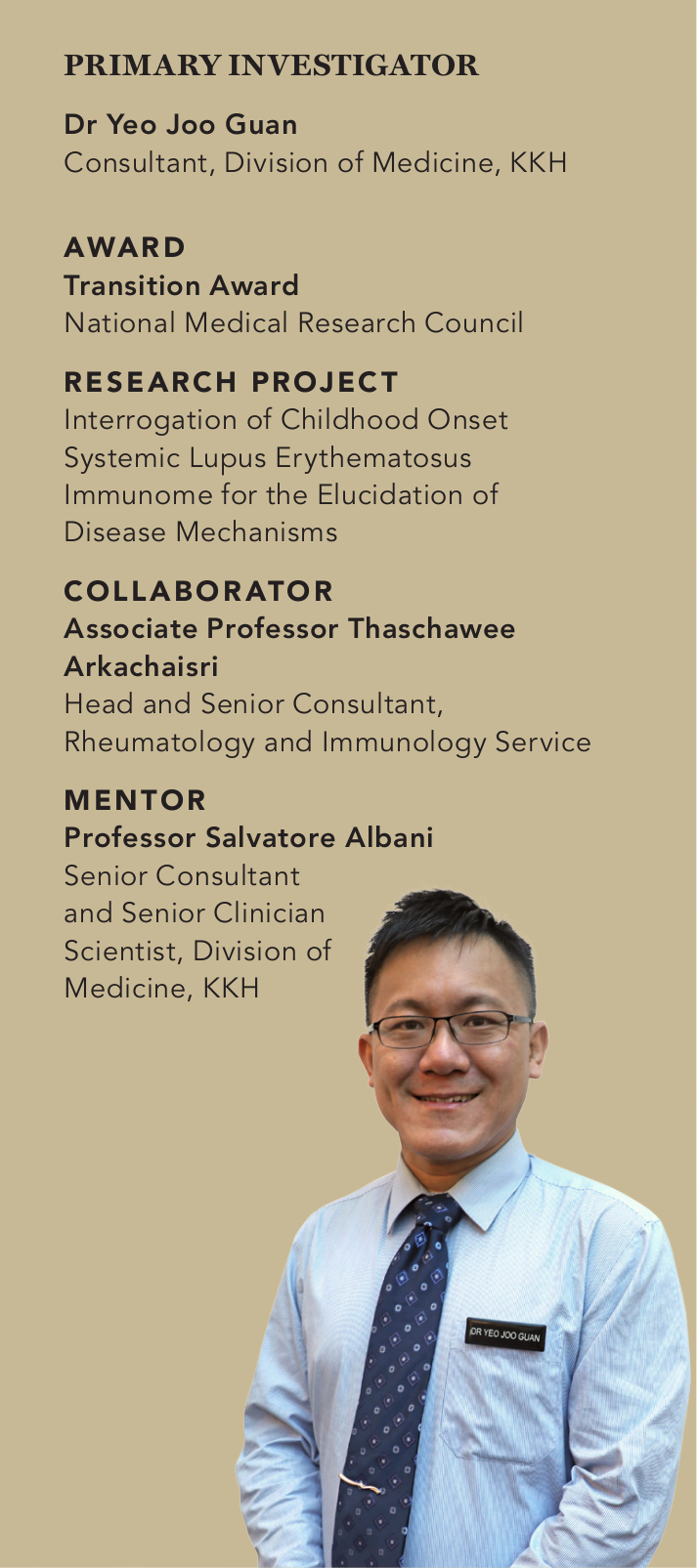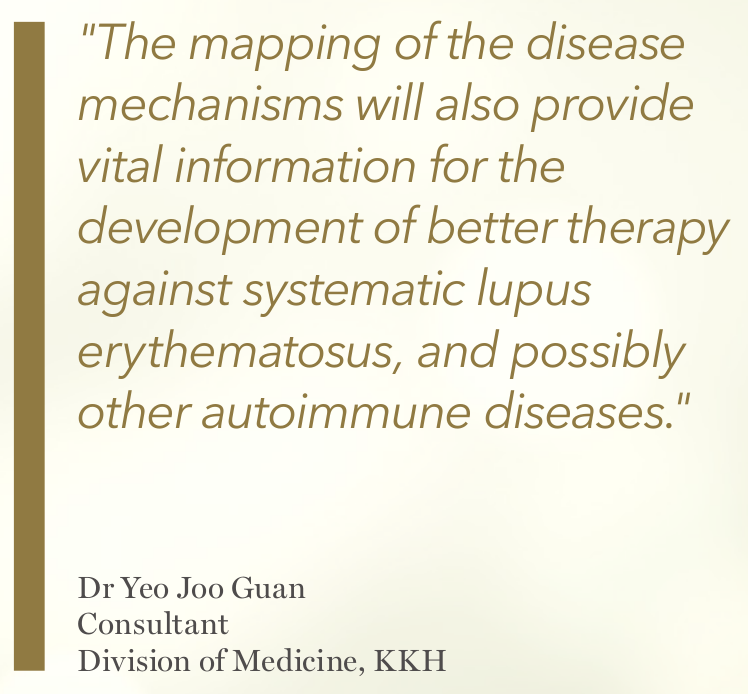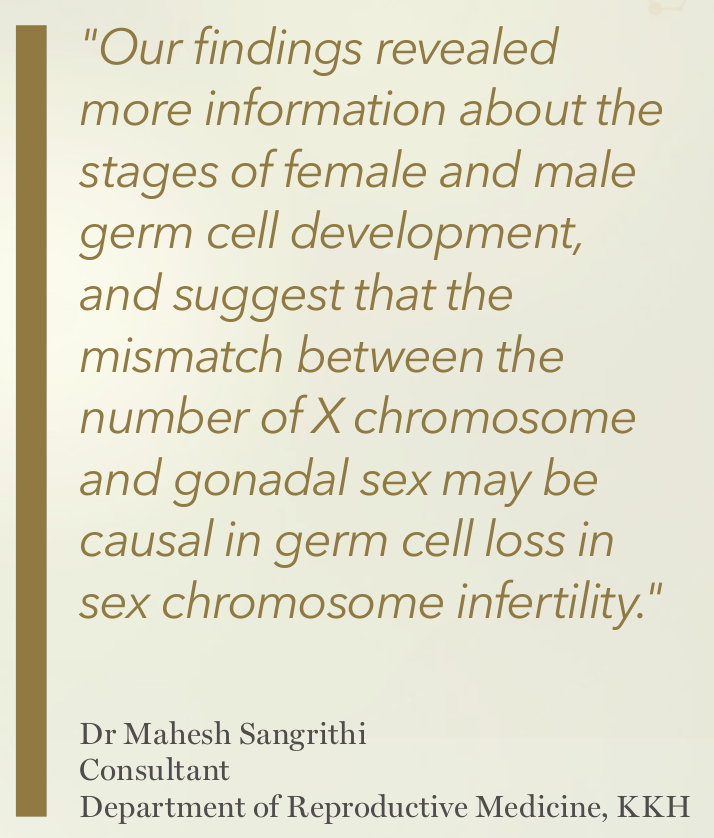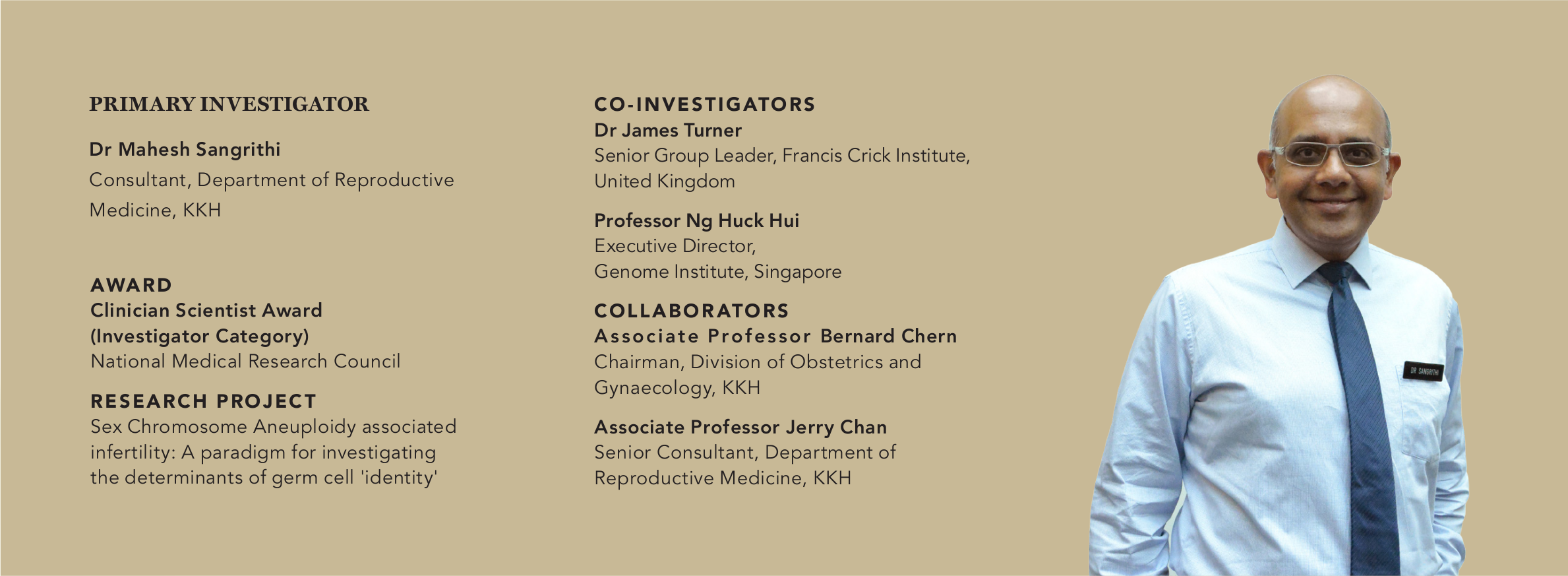Dr Yeo Joo Guan (left) won the Transition Award and Dr Mahesh Sangrithi (right) won the Clinician Scientist Award (Investigator Category) for their research studies at the
National Medical Research Council (NMRC) Awards Ceremony and Research Symposium 2018.
At the recent National Medical Research Council (NMRC) Awards Ceremony and Research Symposium 2018, clinician scientists
Dr Mahesh Sangrithi and Dr Yeo Joo Guan from KK Women’s and Children’s Hospital (KKH) were amongst more than 60 clinician scientists who were recognised for transformative research to bring about impactful health outcomes and advance the delivery of healthcare in Singapore.
“KKH is committed to improving and optimising our patients’ health, and we are honoured that the efforts of Dr Sangrithi and Dr Yeo have been recognised by the NMRC,” says
Associate Professor Sng Ban Leong, Director, KK Research Centre, KKH.
“This support further boosts our capabilities to continue to embark on translational research that will benefit our healthcare delivery to women and children.”
Elucidating disease mechanisms of childhood-onset diseases
“Research allows us to address unmet medical needs and find solutions to questions that currently do not have answers,” says clinician scientist Dr Yeo Joo Guan, who is also a consultant with the Division of Medicine at KKH.
Dr Yeo is pursuing research into childhood-onset systemic lupus erythematosus (SLE), the most severe type of a group of rheumatic disorders common in Singapore – for which he was recognised with a Transition Award at the NMRC Awards Ceremony and Research Symposium 2018.
“The lack of a holistic understanding of the lupus immunome is a critical unmet need,” shares Dr Yeo. “The pathogenesis of SLE involves multiple derangements that disturb the fine balance between immunity and regulation. Traditional approaches, which focus on the role of one cell type or molecule at a time, are inadequate for the study of a multi-factorial disease like SLE.”

Taking a multi-dimensional approach, Dr Yeo and team interrogate different parts of the lupus immunome simultaneously utilising mass cytometry to characterise a large number of immune markers at the single cell level.
The cell populations responsible for the disease or worsening of the condition (flare) are subsequently identified, prioritised based on their strength of association with disease activity, and characterised to identify target cells of interest for further interrogation to elucidate the pathogenic pathway.

“This approach has the immediate translational potential of identifying cell populations useful for the prediction of disease outcome. The mapping of the disease mechanisms will also provide vital information for the development of better therapy against SLE, and possibly other autoimmune diseases,” says Dr Yeo.
“I am fortunate to be able to draw on the experience and expertise of my collaborator, and mentor, in the areas of research, rheumatology and immunology.
"In the longer term, we hope to better understand the aspect of immunocompetence during the development of the paediatric immune system, and transform the way diagnosis and therapy for paediatric rheumatological diseases is practised.”
Investigating the biology of sex chromosome disorders and infertility
For Dr Mahesh Sangrithi, winner of a Clinician Scientist Award (Investigator Category) at the recent NMRC Awards Ceremony and Research Symposium 2018, “The best moments are when you make significant and novel conclusions from experiments that can have an impact on the understanding of human illness."
The consultant with the Department of Reproductive Medicine at KKH was recognised for his research into sex chromosome aneuploidy-associated infertility to better understand the mechanisms underlying the influence of the X chromosome on gene expression and methylation in germ cells.

“Germ cells develop differently in males and females and give rise to sperm and eggs respectively. Our research has shown that the sex chromosome complement of germ cells can influence their identity; germ cells with sex chromosome aneuploidy display imbalanced X chromosome dosages, and a mismatch in X chromosome number and phenotypic sex can also distort the ‘identity’ of these germ cells,” explains Dr Sangrithi.
This phenomenon can be seen in common chromosomal abnormality disorders such as Turner’s syndrome (females with one X chromosome) – and Klinefelter syndrome (males with XX chromosomes); these syndromes are also associated with infertility.

“Our findings revealed more information about the stages of female and male germ cell development, and suggest that the mismatch between the number of X chromosome and gonadal sex may be causal in germ cell loss in sex chromosome infertility,” shares Dr Sangrithi.
Working towards an in-depth analysis of germ cell identity, Dr Sangrithi’s team has established the first research wet lab for obstetrics and gynaecology in SingHealth.
“This Reproductive Biology and Stem Cells laboratory, housed at the Academia, will enable the team to harness a combination of approaches, such as mouse models and RNA-, bisulphite- and ChIP-sequencing, to generate high-resolution expression and epigenetic maps of germ cells,” says Dr Sangrithi.
“It is a real pleasure and honour to be working alongside distinguished researchers from KKH, Genome Institute of Singapore and Francis Crick Institute, in pursuit of the answers to fundamental questions regarding how the human body works.
“The more we are able to uncover about the biology underlying germ cell identity, the better we will be able to inform and manage patients with sex chromosome aneuploidy syndromes, and infertility in general.”

